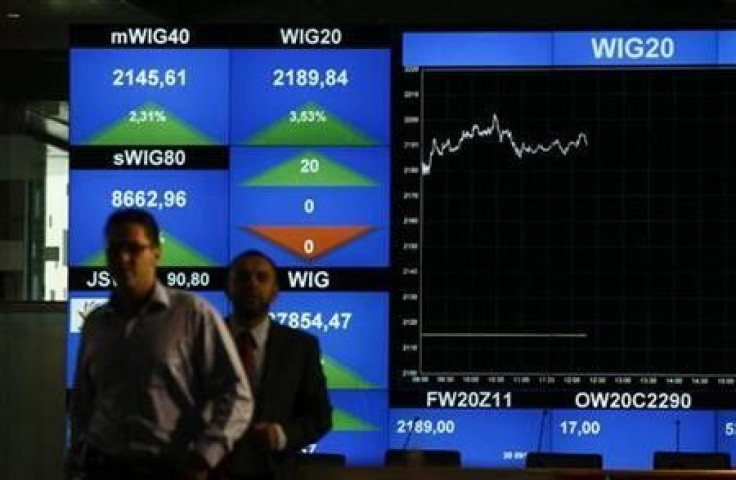Grexit, China Growth Fears Weigh On European Assets

(Reuters) - European stocks dipped and low-rated bond yields rose on Monday after dismal Chinese trade data and signs of increasingly fraught relations between Greece and its international creditors kept investors cautious.
The U.S. dollar gave up some of the ground it made against other major currencies on Friday after strong jobs data increased the chances of a near-term Federal Reserve interest rate hike.
In Europe, all eyes were on Greece, after its new prime minister Alexis Tsipras ruled out extending its bailout and pledged to reverse some of the reforms imposed on the country by its international lenders, jeopardizing its finances and its place in the euro club.
Having won little support during a tour of European capitals for debt relief last week, Tsipras' defiant speech on Sunday has upped the ante in a standoff with its partners.
"The immediate headline reaction was that this speech would make it much more difficult for Greece to come to an agreement with its European partners and thus the risk of Greece leaving the Eurozone was now higher than ever," said Gary Jenkins, chief credit strategist at LNG Capital.
Jenkins said there was now a 50 percent chance of Grexit.
Athens' stock market was down around 5 percent, while broader European shares tracked earlier losses in Asia.
The pan-European FTSEurofirst 300 index fell 1.2 percent, with Germany's DAX down 1.7 percent, France's CAC down 1.3 percent and UK's FTSE down 0.9 percent.
MSCI's broadest index of Asia-Pacific shares outside Japan slipped 0.6 percent.
Greek 10-year bond yields opened up 59 basis points at more than 11 percent, while three-year yields shot up over 120 bps to 19.18 percent. The surge pulled up yields on other low-rated bonds in Portugal, Italy and Spain, while benchmark German bond yields dipped 3 bps to 0.35 percent.
Data on Sunday showed China's trade performance slumped in January, with exports falling 3.3 percent from a year ago while imports tumbled 19.9 percent, far more than analysts had expected, highlighting deepening weakness in the world's second-largest economy.
"The trade data is ugly, which points to a weaker economy ahead," said Wang Mingli, strategist at Guoyuan Securities in Shanghai. "Even if there are fresh stimulus measures, they're aimed at aiding the economy, not the market."
The poor China trade figures took some of the shine off robust U.S. payroll gains of 257,000 in January.
Hourly wages also rebounded, increasing 12 cents last month for a 2.2 percent increase from a year earlier, the largest such gain since August.
The data was strong enough that traders brought forward their expectation of the Fed's rate hike, with money market futures fully pricing in a rate hike by September, compared to around October before the data.
The prospect of an earlier U.S. rate hike is weighing on many assets that have benefited from low interest rates in the United States while boosting U.S. bond yields and underpinning the dollar.
The U.S. dollar's index against a basket of six major currencies held onto most of its 1.1 percent gain on Friday and stood at 94.442, not far from an 11-year high of 95.481 hit last month.
The euro traded at $1.1351, up around 0.3 percent against the dollar.
Oil prices dipped on Monday as the slump in Chinese imports, pointed to lower fuel demand in the world's biggest energy consumer.
Brent oil futures fell 0.4 percent to $57.54 per barrel, clinging on near a six-week high of $59.06 touched on Friday.
Gold rebounded slightly from a three-week low of $1,228.50 touched on Friday as share prices eased. It last stood at $1,241.60 per ounce.
© Copyright IBTimes 2024. All rights reserved.











